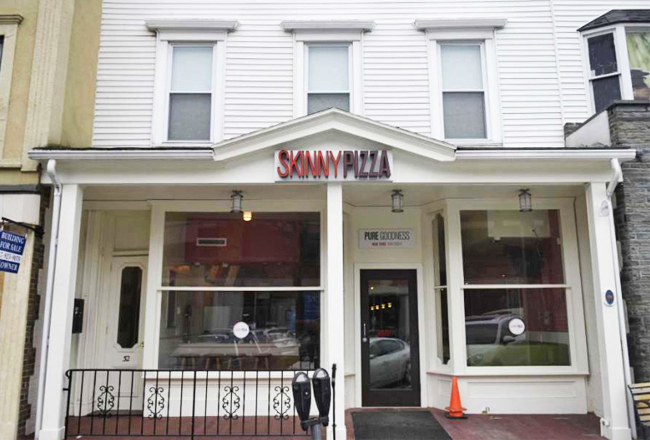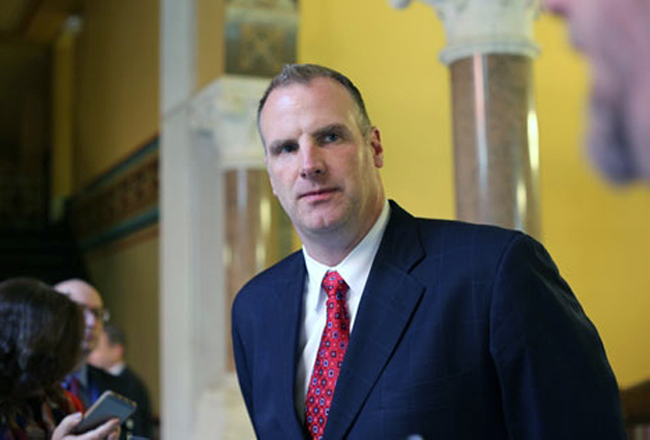Former orthopedic surgeon Spyros Panos has sued the companies involved in the Vineyard Commons senior housing project in Ulster County for $1.2 million, claiming he was defrauded.
 Panos states in a complaint filed in federal court in White Plains that he learned about a kickback scheme on the Vineyard Commons project on May 20, 2016, from a press release issued by the U.S. Attorney”™s Office.
Panos states in a complaint filed in federal court in White Plains that he learned about a kickback scheme on the Vineyard Commons project on May 20, 2016, from a press release issued by the U.S. Attorney”™s Office.
On that date, according to court records, Panos himself was in federal prison, having been convicted of health care fraud.
Now Panos of Hopewell Junction in Dutchess County, is trying to recover investments in a project that has resulted in three criminal convictions.
The Vineyard Commons conspirators devised a kickback scheme in which contractors inflated their bids and the developer submitted false reports to the project”™s loan guarantor, the U.S. Department of Housing and Urban Development.
The project defaulted on the HUD-insured loan. The government took over the loan, sold the project and lost $28 million.
Panos is suing two companies implicated in the kickbacks: Universal Forest Products Inc. and its subsidiary, Shawnlee Construction LLC of Grand Rapids, Michigan.
In 2009, he said, he invested $1,215,000 in three entities connected to the project, including Vineyard Commons Holdings, Highland Square Development and Windows of the Hudson Valley.
By then, he claims, the kickback conspiracy was underway. When the scheme unraveled, around 2012, Panos lost the entire value of his investments.
He is accusing Universal and Shawnlee of aiding and abetting fraud by knowingly participating in the kickback scheme.
Robert Lees, an employee of Shawnlee and Universal, was found guilty in 2016 of fraud, money laundering and other criminal charges. He was sentenced to 40 months in prison.
Developer Michael Barnett pleaded guilty to defrauding lenders and making false statements to HUD. He was sentenced to 37 months in prison.
Kevin DiCello, a Universal executive, pleaded guilty to a criminal charge. He was sentenced to three years of supervised release.
Panos had plenty of money to invest. From 2007 to 2011, the government said, he received more than $7.5 million in compensation for his work at Mid-Hudson Medical Group.
He performed as many as 20 surgeries a day, routinely saw 60 patients a day and at times saw more than 90 patients a day. The medical practice submitted more than $35 million in health care claims for his work, from 2006 to 2011, and it received $13 million in payments.
But another orthopedic surgeon who treated four of his former patients noticed discrepancies between Panos”™ medical records and the surgeon”™s own physical findings. In 2010 the new surgeon notified the New York Office of Professional Medical Conduct, triggering an investigation.
Investigators discovered numerous instances of the medical practice billing insurers for procedures that Panos did not perform or that were falsely described. Bills were submitted, for example, for open surgeries that had been done arthroscopically. He tried to conceal his scheme by blaming others for clerical errors.
He pleaded guilty to cheating Medicare, Medicaid, the New York State Insurance Fund and private health insurance providers. In 2014 he was sentenced to prison for four-and-a-half years. He was released after less than three years, on March 13, 2017.
The court had also ordered him to forfeit $5 million in ill-gotten gains. As of November, he still owed $1.3 million. He was accused of medical malpractice in hundreds of lawsuits. Those cases were reportedly settled recently by insurance companies for $40 million to $45 million.
Panos acknowledged guilt and remorse in a letter to federal judge Nelson S. Roman before he was sentenced to prison.
“I did this out of greed and insecurity,” he wrote. “I wanted the practice to succeed because I was invested financially and emotionally in its success.”
He said his conduct ruined his career, caused him to lose the trust of many people, embarrassed his family and community and has created ripple effects that will last a lifetime.
“My inability to practice medicine,” Panos said, “has been devastating to me.”






















